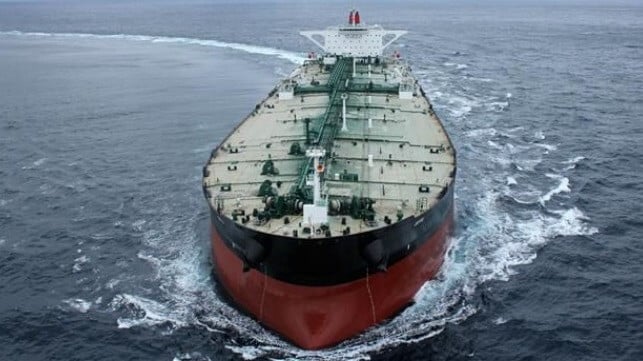EU Proposes More Tanker Sanctions as it Maps End of Russian Energy Imports

The European Commission is proposing two key strategies to further curtail the Russian energy market and move toward energy independence. While citing strong progress, commissioners said more must be done to break free and continue the pressure on Russia to end the war in Ukraine.
According to the media reports, the proposal for the 17th round of sanctions enacted since the start of the war in Ukraine was distributed to the member countries on Tuesday, and today, May 7, discussions began on the scope of the package. Reports indicate it is not only focusing on the shadow fleet but also the companies and countries helping Russia avoid the current sanctions and further restrictions on exports of goods and advanced technologies that can be used by the Russian military.
The number of vessels and organizations included in the proposed package varies between reports, but most agree that more than 100 additional tankers could be sanctioned. That would bring to over 300 the number of vessels the EU has designated. Between 50 and 60 individuals and entities are believed to be targeted, including ones in China, Vietnam, Turkey, and Serbia, according to a story in the Financial Times. Others could be included that are in the UAE and Uzbekistan.
Bloomberg is reporting today that the package may also target, for the first time, Litasco Middle East DMCC, the trading division of Lukoil based in Dubai. Bloomberg reports that Lukoil was the second-largest seller of Russian crude in the international markets in 2024. The package may also include the Russian insurance company VSK, but it will continue an exemption until at least June 2026 for Russia’s Sakhalin-2 energy project, which is reported to be vital to Japan.
The European Commission cited data showing that Russian oil imports have been slashed from 27 percent at the beginning of 2022 to just three percent of the EU market. Further, it points out that coal imports have been totally banned, and now it is moving to end gas imports. They cited data that gas imports fell from a market share of 45 percent (150 bcm) in 2021 to 19 percent (52 bcm) in 2024. However, they acknowledged that 2024 saw a rebound in Russian gas imports.
“It is now time for Europe to completely cut off its energy ties with an unreliable supplier,” said European Commission President Ursula von der Leyen. EU Commissioner for Energy and Housing Dan Jorgensen joined the president in saying “No more,” citing Russia’s weaponizing energy, blackmail against member states, and using monies for its war chest.
Under the proposed plan, a roadmap is set out to gradually remove Russian oil, gas, and nuclear energy from the EU markets. Member states have said in the past that they needed the EU to act so that they could break long-term contracts. Under the proposal presented yesterday, the EC calls for ending new contracts with suppliers of Russian gas, including pipelines and LNG, at the end of 2025. This would include existing spot contracts. That step, they said, would slash by one-third the remaining supplies of Russian gas. The Commission proposed to stop all remaining Russian gas imports by the end of 2027. Attention would then turn to the phase out of nuclear energy and uranium.
The EU expects to replace up to 100 billion cubic meters of natural gas by 2030. They expect a decrease in demand by 40 to 50 bcm by 2027 while noting at the same time LNG capacities are expected to increase around the world by around 200 bcm by 2028. They note that it would be more than five times the current EU imports of Russian gas.
